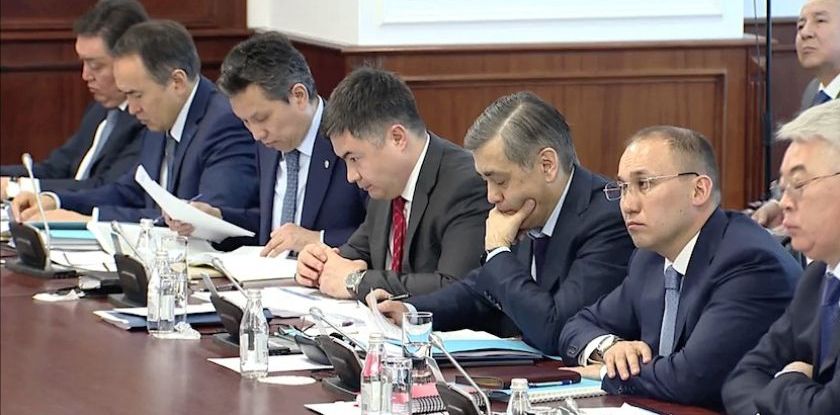After the dismissal of Bakytzhan Sagintayev’s Government and appointment of the new Cabinet under the leadership of Askar Mamin as well as the replacement of Daniyar Akishev as the Chairman of the National Bank by Erbolat Dosayev, the Kazakh information space has started a vigorous discussion on the topic of how Nursultan Nazarbayev’s personnel decisions will influence the situation in the country.
We believe they will not. But, to prove our point, let us put forward some arguments.
The thing is that the Kazakh socio-economic policy is developed not by the Government (albeit it does participate in its formation) and, of course, not by the Parliament but by Akorda. And it is usually articulated in the Presidential addresses to the people. Of course, Akorda is significantly limited in its capabilities via a number of the subjective and objective factors, both external and internal. For this reason, during the recent years, Nursultan Nazarbayev has been forced to pursue the increasingly populist policy in order to weaken the protest moods, hold on to the power and, therefore, not to allow for the collapse of the existing economic model based on the expropriating of a significant part of the surplus product by the ruling elite, first of all, by the President’s family.
This is why there will be no crucial changes in Akorda’s socio-economic policy (except on paper). And this can be confirmed, among other things, by the fact that the main retirees have not been sent to “float freely” but obtained some quite prestigious posts in the state apparatus: Sagintayev has become the State Secretary of the Republic of Kazakhstan and Akishev has been appointed the Presidential Adviser.
In other words, on one hand, Nazarbayev has made them “scapegoats”, on the other, compensated for the losses of their chairs via giving them a “candy” – the new high-rank posts. This is an important indication for the Kazakh bureaucratic apparatus that has long been trained how to read between the lines.
We believe the Kazakh state socio-economic policy in general can only be altered in the two cases.
First, in the case if the President is replaced. Then, Nursultan Nazarbayev’s successor will be forced, no matter what happens, to make some adjustments to the policy of his predecessor if for no other reason than the fact that the new leader will not have the same indisputable powers and will have to try and find a balance.
Second, in the case of some significant impacts no matter of what nature – economic, financial or political. Including those that seem unlikely. For example, if the world oil prices drop by two or three times, if there is a leakage of the information that a significant part of the National Fund’s resources has been embezzled or if the USA imposes sanctions against Nursultan Nazarbayev and his nearest and dearest for his refusal to reorient the country towards the West.
We believe the Kazakh Government under the leadership of Askar Mamin and the National Bank of Kazakhstan under the leadership of Erbolat Dosayev will continue pursuing the general policy of their predecessors especially since the Cabinet has not been changed drastically.
Any serious adjustments to the current policy can only be made in the agricultural sector. For Umirzak Shukeyev’s resignation and the appointment of Saparkhan Omarov (who is, according to the insiders, an opponent of his predecessor) were an outcome of a number of factors including the massive discontent on the part of the large landowners that had suffered from Shukeyev’s team’s activities and the lack of big successes in the sphere of the agricultural reforms.
The changes in the other ministers as well as in the National Bank will, most likely, be of the staffing-technical nature. The newly appointed ministers will pull certain people closer and push away those whom they do not trust or who is unlucky to have been mixed up in some scandal. But this process will be happening in a relatively quiet and slow manner albeit not without some big scandals of the local significance.
As for the National Bank and its new chairman, Erbol Dosayev, being a professional manager and an ultra-experienced bureaucrat who has been through it all and whose scope of movements in the state apparatus is anomalous even for Kazakhstan, will, of course, quietly make adjustments to the regulator’s policy. All the more so since he has received former Minister of Economy Timur Suleymenov as his deputy. But, again, it will be happening very slowly in order not to force the country’s banking sector into the next nosedive.





